“The tragedy of Brexit is that it affects the lives of thousands of people”
Michael Harris, the president of the Eurocitizens association, discusses the outlook that Britons in Spain are facing ahead of the UK’s withdrawal from the EU
Madrid
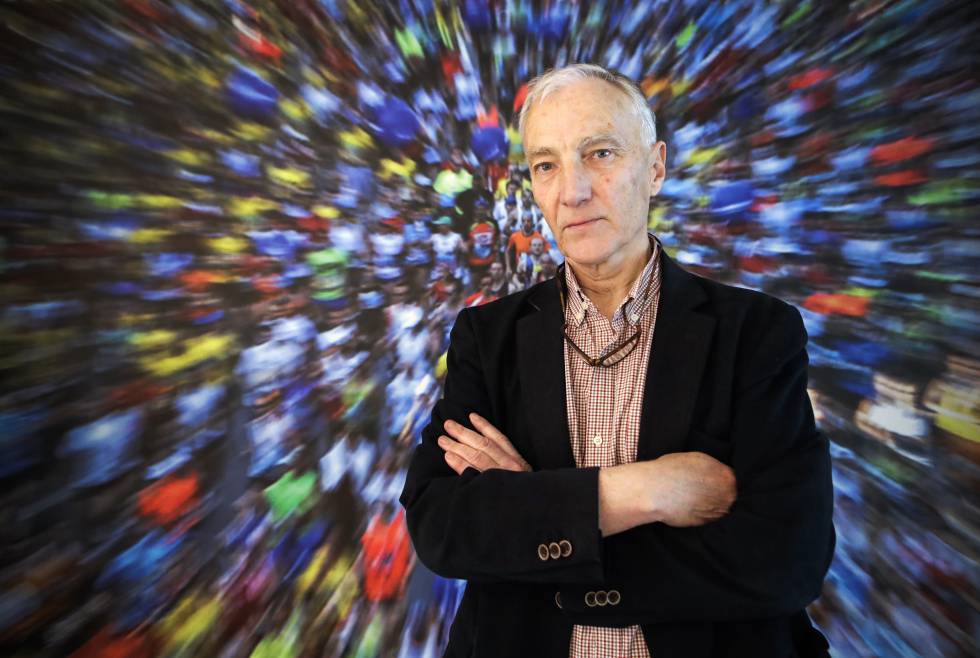
Michael Harris, the president of the Eurocitizens association. GEMA GARCÍA EL PAÍS
At 11pm on March 29, 2019, the United Kingdom will officially leave the European Union – or at least it will begin a 21-month transition period aimed at smoothing the way toward post-Brexit relations. But for worried observers of the process that was set into motion on June 23, 2016, when the leave vote was narrowly victorious in a referendum, the process has been anything but smooth until now.
Eurocitizens has organized a round table in Madrid on May 23 called “The Human Cost of Brexit”
While politicians wrangle over the future of trade and the thorny issue of a hard border in Northern Ireland, the millions of Europeans living in the UK and the millions of Britons living in Europe have been nervously wondering what will happen to them and their rights – and many of those questions are still definitively unanswered.
To examine these issues, the Eurocitizens association – created to protect the rights of Spanish people in Britain, and British people in Spain who are being affected by Brexit – has organized a round table in Madrid on May 23 called “The Human Cost of Brexit,” at which a number of guest speakers will be examining the effect that the UK’s exit from the EU is going to have. Among those scheduled to appear are Alex Luzárraga, the vice-president of corporate strategy at travel firm Amadeus, Andy Mackay, the director of The British Council in Spain, and Mark Kitcatt, the president of the IMPALA European independent music companies association.
Ahead of next week’s event, Michael Harris, a writer and the president of Eurocitizens, came to the EL PAÍS newsroom to explain more about the event, and to discuss the outlook that Britons in Spain are facing post-Brexit.
Question. What has Eurocitizens been doing this past year?
Answer. We’ve been lobbying with the Spanish government, we’ve had various meetings with the Spanish Foreign Ministry, we spoke to the secretary of state for European affairs, and we had a meeting with Foreign Minister [Alfonso] Dastis in December. And also we’ve been working with British in Europe, which is a coalition of groups of British citizens in Europe affected by Brexit. They lobby directly in Brussels and London, and in Strasbourg. We have two basic objectives, which is to preserve the existing rights of both Spanish people in Britain, and British people in Spain. We’re not involved in being anti-Brexit, our aim is fundamentally citizens rights.
We’re not involved in being anti-Brexit, our aim is fundamentally citizens rights
Q. Do you think Brexit is definitely going to happen?
A. Our battle isn’t actually Brexit, but it looks like it’s going to happen, yes. What we’ve got to try and do is salvage as much as we can of the rights that people have got, because all of this can sound very theoretical and distant but it actually affects the lives of thousands of people, and that’s the tragedy of all of this. Every single clause in the current withdrawal agreement has an effect, and it has an effect on lives of people, and that’s what we’re worried about.
Q. What have you done personally to mitigate the effects of Brexit?
A. I’ve lived here for thirty-something years and I’m married to a Spaniard. I applied last year for Spanish nationality, but it will probably take another three or four years to get it. I have to renounce my British nationality although in theory you can get away with not doing that, but it’s very complicated. A lot of people in Europe and Spain can’t go down that route, so it’s not an alternative. It’s not that simple.
Q. As with Catalonia, debate on the issue of Brexit often seems to be quite toxic. Do you get involved online with such arguments?
A. No because our brief is on citizen rights. There are a lot of stereotypes in Britain about people who live in Spain, people who live abroad, they all think we’re rich retired people living in big villas with swimming pools. So we get sometimes, “Well you chose to leave Britain.”
Most of the British people who live in Spain are people of working age and they are not millionaires
Most of the British people who live in Spain are people of working age and they are not millionaires, they’re people who’ve taken advantage of their free movement, to get on their bikes, and get their act together and get work, and often protect the interests of Britain, working for British companies, teaching English, working for British organizations… People think there’s this idea of you’re a traitor if you leave Britain – well actually we’re working for Britain a lot of us, at the same time we’re living in Europe.
Q. What is the aim of the round table next week?
A. The round table is called the Human Cost of Brexit. With the Brexit negotiations people are talking about customs unions, and rightly about the Northern Irish border, and things like that.
It’s very difficult to get on the agenda that this is going to seriously affect the lives of 1.2 million Britons in Europe and three million Europeans in Britain. We’re going to talk about citizens rights, and then we’re going to talk about the general impact on people in different sectors, education, for example, or the effect on students, Spanish students or British students who want to study in a different place. What effect is that going to have? The effect on business – we’ve got a guy from Amadeus, who’s going to be talking about the effect on what it’s going to be like to hire people from different countries after Brexit. We’ve got a union person, we’ve got someone from the creative industries – one of the biggest areas that is going to be hit with an end to freedom of movement is music, publishing, art, cinema, all these things. For example, music, when a group goes to the States it’s really complicated – they’ve got to get visas, and with an end to free movement it’s going to affect people’s work, their livelihoods and a lot of people’s futures.
Q. What do you think is going to happen on “D-Day,” March 29, 2019, when Brexit actually happens?
A. On March 29, we will stop being European citizens – the European Commission is being very hard on this one. They’ve said, because your citizenship is related to your nationality, on March 29 you are no longer European citizens. Then we lose our political rights. We have no rights to vote, we have no rights to stand as candidates, and that means that for most British people in Europe, we won’t have a vote anywhere, because after 15 years you can’t vote in Britain. So we will be totally disenfranchised.
The next stage – because the transition should happen after that, until January 1, 2021 – will see us lose our rights for freedom of movement, we will lose rights related to qualifications, to family reunification, all of these things. Basically we are on a downward path, towards third-class... I wouldn’t even call it citizenship, we will be third-class citizens wherever we live. We’re people who have lived for years as European citizens, we’re proud to be European, we don’t want to lose our European identity, and this is all happening against our will, as most of us weren’t able to even vote in the referendum.
Basically we are on a downward path, toward third-class... I wouldn’t even call it citizenship, we will be third-class citizens wherever we live
So it’s a bit of a nightmare. As I said before, a lot of people’s lives will be really really turned around by this. If you work as a freelancer around Europe you will no longer be able to do it.
If you’re married, or you’re living with someone from another country, things get really complicated. If you have children living in another European country, that gets complicated. So it’s a whole raft of issues.
One of the most irritating things is that when people talk about citizens rights, they say it’s all really simple. It isn’t simple. There’s lots of gray areas, there are lots of complexities. A lot of people can fall through the gaps. We’re worried about people’s lives. Brexit is emotional, about people’s position on nationalism, or attitudes, but actually I think they’ve got to remember that a lot of people’s lives will be affected, and we’re not actually talking about the advantage of one thing or the other, it’s just what will happen to people. We’ve already lived with two years of uncertainty. A lot of people can’t sleep properly, a lot of people are worried about what’s going to happen to their children, what happens if they’ve got an elderly relative, what happens if they are the elderly relative. All of this kind of thing will have an impact on people. It’s the human cost.
For more information about the round table event click here to visit the Eurocitizens website.
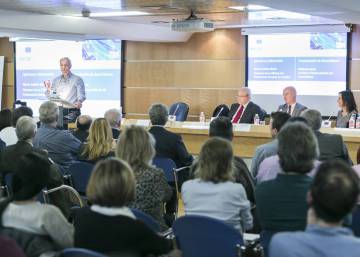
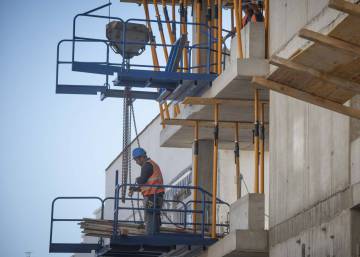
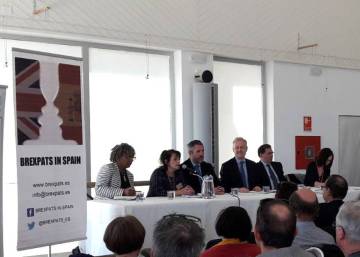
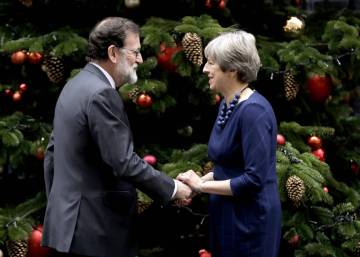





































No hay comentarios:
Publicar un comentario